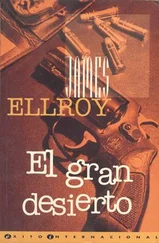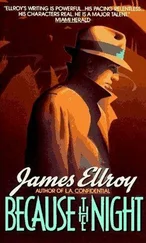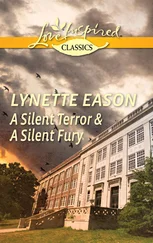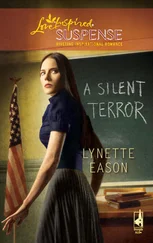The time passed quickly. I quit my job, liquidated my bank account and loaded my van with my clothes, toilet articles, and talisman/silencer, leaving my other steel objects behind to symbolize old ties being broken. The loss of my knaves hurt and warmed at the same time — I knew it was a conscious sacrifice aimed at avoiding catastrophe.
On my birthday night I took a farewell walk through my neighborhood. No objects glared at me, and no weird numbers flashed before my eyes. Only thunder and rain hit, drenching me to the bone. Looking for a place to keep dry, I noticed the neon sign in front of the Nuart Theatre: “Save the Seals.”
I ran over. The lobby was deserted, so I headed for the men’s room to get some paper towels. I had my hand on the door when I heard a high keening sound issue from the theatre proper. I forgot about drying myself and walked straight toward it.
Seals were being beaten to death on the screen. Their yelps were what I had heard, and now they were joined with sobs from the audience. The sound was thrilling, but the sight was ugly and pathetic, so I closed my eyes. The absence of sight brought the taste of blood — the blood of every body I had ever desired. Soon I was sobbing, and the taste deepened until the yelps were replaced by music. I opened my eyes, and people were filing past me, giving out looks of sympathy and commiseration. My shoulders were patted and my hands were touched — as if I were one of them. None of the people knew that the origin of my tears was in joy.
The city I chose was San Francisco, and my only reason for doing so was that its topography was antithetical to L.A.’s. Terraced hillsides and Victorian houses would not pulse with hidden messages from my past, and the city’s relative lack of neon would mean diminished penal-code hallucinations. Los Angeles had formed me and owned me and driven me out; San Francisco was the opportunity to nullify my personal history and forge new drives in memory-free surroundings.
So, with the simple traversing of 430 miles, I went from increasingly lucid indicators of my destiny to an amnesia made easy by San Francisco’s newness. I rented an apartment on 26th and Geary in the Richmond District, wiping out the bulk of my savings furnishing it with innocuous non-steel furniture and pastoral framed prints. The exigencies of behaving like so-called normal people were softly satisfying, and I began to think I could play the role for a long, long time.
Deciding to give myself a week before looking for work, I explored the city. Quaintness, oldness and prettiness were manifest, and a sense of grace seemed to imbue the people I saw on the street — they were, on the average, far more attractive than L.A. inhabitants, with a greater ethnic diversity, and a fairly large number of them were traffic-stopping blonds.
I didn’t stop for them, though; an unseen weight pushed my foot onto the accelerator when those comely reminders of my past appeared. It was solid evidence that my benign amnesia was holding. Other signs — dreams filled with pastel colors, quiet nighttime walks, the loss of my gun obsession — added up to the magically simple word happiness.
And continued happiness required money. My week of tranquility had eaten up all but two hundred dollars of my funds, and I needed the quick replenishment of a weekly paycheck. On my eighth morning in San Francisco I got out the Yellow Pages and looked for employment agencies with casual labor pools. I found a half-dozen of them listed, all on the same block of South Mission. I drove there, anxious to carve another notch on my serenity.
It was a skid-row block, the kind that in Los Angeles had always depressed me. But here the seediness seemed almost charming, and as I locked my van and consulted my agency list, I got a feeling of belonging. Propelled by it, I pushed through a door marked “Mighty-Man Job Shop” and walked up to a paper-littered front counter.
A young woman with shoulder-length black hair looked up from her desk and smiled at me, then said, “You’re the man from Orinda who wanted three slaves — oops — I mean Mighty-Men to do yard work, right?” She consulted some forms in front of her and added, “Eddington, right? You said you’d send your chauffeur to pick the winos — I mean workers — up?”
Caught off guard by her directness, I blurted, “What?”
She smiled at my befuddlement. “You mean you’re not Eddington, but you need slaves?”
I looked into her eyes and saw that she was probably high. “No, I—”
“Then you came to ask me for a date?”
I realized I was being flirted with. I got a hollow “nothing” feeling, and reflexively grasped for Shroud Shifter’s counsel, then snapped to the fact that this was San Francisco, not L.A., and S.S. was supposed to be obsolescent. “I’m new in town,” I said. “I need work, and I saw your ad in the Yellow Pages.”
The woman said, “God, I’m sorry, it’s just that you’re so neatly dressed, and... well... mostly the guys we get are boozehounds and dopers, you know, looking for a few bucks to get bombed on. Are you crashing here on the Row?”
“I’ve got an apartment,” I said.
She looked surprised. “Where?”
“Twenty-sixth and Geary.”
Now she looked astonished. “God, my boyfriend lives on that block. Listen, you look sort of middle-class, so I’ll hip you to something. We pay our guys minimum wage for menial stuff like passing out handbills, unloading non-union trucks, that kind of thing. Our basic scam is that we pay in cash at the end of the day. That way, the slaves blow their money on wine and dope every night and come back the next morning. If you can afford to live in the Richmond, you can’t afford to work out of here.”
Now I was astonished — I was starting to like the woman. “I spent my savings moving in; now I need to find work so I can keep the place.”
“Wow, a real working man in a bind.” The woman took a cigarette from the pack on her desk, lit it and smoked in silence for long moments. Finally she snapped her fingers and walked to the counter. Leaning forward conspiratorially so that her hair brushed my face, she said, “Go over to the S.F. State campus and check out the bulletin board outside the student employment office. They’ve got lots of jobs listed for decent bucks. Just rip off the cards for the jobs you’re interested in, call the numbers and tell them you’re a grad student who goes to school at night so you can work full-time. You’re big and you look smart, so you should get hired. Got it?”
I said, “Got it,” and drew away from the cascade of hair. The woman straightened up and smiled, and I knew that she had relished our contact. Holding out her hand, she said, “I’m Jill, by the way.”
Intending a perfunctory shake, but taking the hand gently, I said, “I’m Martin.”
“Good luck, Martin.”
“Th-thank you for your help.”
Consciously shutting down the delicacies of the exchange, I followed the woman’s advice and drove to the San Francisco State campus. The bulletin board she had mentioned was covered with cards offering work, and I deviated from her plan only by memorizing the jobs and phone numbers rather than stealing the information. From a pay phone I called the advertisers, getting three no-answers for the clerical openings, and a brusque male “Yes” for the manual labor card.
“I’m calling about the job you posted at S.F. State,” I said.
“Are you a full-time student?” the voice asked.
“I’m a night grad student.”
“Are you husky? Pardon my French, but this is no job for a candy-ass.”
“I’m six-three, two hundred and strong. What exactly do I have to do?”
Читать дальше












